
The Gulag was a system of forced labor camps in the Soviet Union. The word Gulag originally referred only to the division of the Soviet secret police that was in charge of running the forced labor camps from the 1930s to the early 1950s during Joseph Stalin's rule, but in English literature the term is popularly used for the system of forced labor throughout the Soviet era. The abbreviation GULAG (ГУЛАГ) stands for "Гла́вное Управле́ние исправи́тельно-трудовы́х ЛАГере́й", but the full official name of the agency changed several times.

Butyrskaya prison, usually known simply as Butyrka, is a prison in the Tverskoy District of central Moscow, Russia. In Imperial Russia it served as the central transit prison. During the Soviet Union era (1917–1991) it held many political prisoners. As of 2022 Butyrka remains the largest of Moscow's remand prisons. Overcrowding is an ongoing problem.
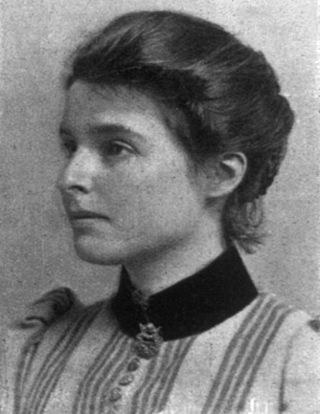
Martha Beatrice Webb, Baroness Passfield, was an English sociologist, economist, and social reformer. She coined the term "collective bargaining", was among the founders of the London School of Economics and played a crucial role in forming the Fabian Society. As a feminist and social reformer, she criticised the exclusion of women from various occupations as well as campaigning for the unionisation of female workers, pushing for legislation that allowed for better hours and conditions.

Svetlana Iosifovna Alliluyeva, later known as Lana Peters, was the youngest child and only daughter of Soviet leader Joseph Stalin and his second wife Nadezhda Alliluyeva. In 1967, she became an international sensation when she defected to the United States and, in 1978, became a naturalized citizen. From 1984 to 1986, she briefly returned to the Soviet Union and had her Soviet citizenship reinstated. She was Stalin's last surviving child.
The d'Artagnan Romances are a set of three novels by Alexandre Dumas (1802–1870), telling the story of the 17th-century musketeer d'Artagnan.

Kolyma or Kolyma Krai is a historical region in the Russian Far East that includes the basin of Kolyma River and the northern shores of the Sea of Okhotsk, as well as the Kolyma Mountains. It is bounded to the north by the East Siberian Sea and the Arctic Ocean, and by the Sea of Okhotsk to the south. Kolyma Krai was never formally defined and over time it was split among various administrative units. As of 2023, it consists roughly of the Magadan Oblast, north-eastern areas of Yakutia, and the Bilibinsky District of Chukotka Autonomous Okrug.

Vasily Semyonovich Grossman was a Soviet writer and journalist.

Vasily Pavlovich Aksyonov was a Soviet and Russian novelist. He became known in the West as the author of The Burn and of Generations of Winter, a family saga following three generations of the Gradov family between 1925 and 1953.

Jānis Rudzutaks was a Latvian Bolshevik revolutionary and a Soviet politician. He was executed during the Great Purge.
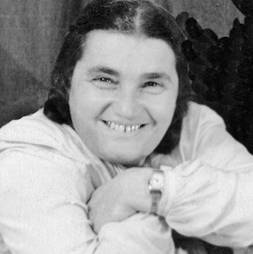
Yevgenia Solomonovna Ginzburg was a Soviet writer who served an 18-year sentence in the Kolyma Gulag. Her given name is often Latinized to Eugenia.
Yuri Timofeyevich Galanskov was a Russian poet, historian, human rights activist and dissident. For his political activities, such as founding and editing samizdat almanac Phoenix, he was incarcerated in prisons, camps and forced treatment psychiatric hospitals (Psikhushkas). He died in a labor camp.

Alexander "Alik" Ilyich Ginzburg, was a Russian journalist, poet, human rights activist and dissident. Between 1961 and 1969 he was sentenced three times to labor camps. In 1979, Ginzburg was released and expelled to the United States, along with four other political prisoners and their families, as part of a prisoner exchange.
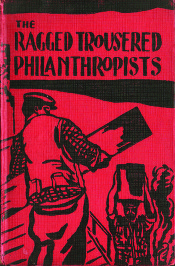
The Ragged-Trousered Philanthropists (1914) is a semi-autobiographical novel by Irish house painter and sign writer Robert Noonan, who wrote the book in his spare time under the pen name Robert Tressell. Published after Tressell's death from tuberculosis in the Liverpool Royal Infirmary in 1911, the novel follows a house painter's efforts to find work in the fictional English town of Mugsborough to stave off the workhouse for himself, his wife and his son. The original title page, drawn by Tressell, carried the subtitle: "Being the story of twelve months in Hell, told by one of the damned, and written down by Robert Tressell."

Natalia Ginzburg was an Italian author whose work explored family relationships, politics during and after the Fascist years and World War II, and philosophy. She wrote novels, short stories and essays, for which she received the Strega Prize and Bagutta Prize. Most of her works were also translated into English and published in the United Kingdom and the United States.

Lydia Korneyevna Chukovskaya was a Soviet writer, poet, editor, publicist, memoirist and dissident. Her deeply personal writings reflect the human cost of Soviet repression, and she devoted much of her career to defending dissidents such as Aleksandr Solzhenitsyn and Andrei Sakharov. The daughter of the celebrated children's writer Korney Chukovsky, she was wife of scientist Matvei Bronstein, and a close associate and chronicler of the poet Anna Akhmatova.

Gulag: A History, also published as Gulag: A History of the Soviet Camps, is a non-fiction book covering the history of the Soviet Gulag system. It was written by American author Anne Applebaum and published in 2003 by Doubleday. Gulag won the 2004 Pulitzer Prize for General Non-Fiction and the 2004 Duff Cooper Prize. It was also nominated for the National Book Critics Circle prize and for the National Book Award.
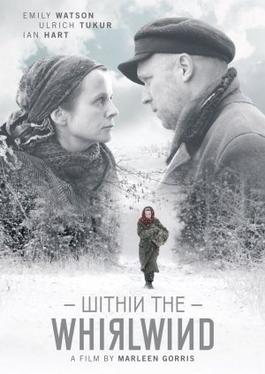
Within the Whirlwind is a 2009 German film directed by Marleen Gorris and based on the autobiographical book Steep Route by Yevgenia Ginzburg. It stars Emily Watson and Pam Ferris. Watson has described the film as "the most stretching thing I’ve done as a mature actress."
Art and culture took on a variety of forms in the forced labor camps of the Gulag system that existed across the Soviet Union during the first half of the twentieth century. Theater, music, visual art, and literature played a role in camp life for many of the millions of prisoners who passed through the Gulag system. Some creative endeavors were initiated and executed by prisoners themselves, while others were overseen by the camp administration. Some projects benefited from prisoners who had been professional artists; others were organized by amateurs. The robust presence of the arts in the Gulag camps is a testament to the resourcefulness and resilience of prisoners there, many of whom derived material benefits and psychological comfort from their involvement in artistic projects.
The Trial of the Four, also Galanskov–Ginzburg trial, was the 1968 trial of Yuri Galanskov, Alexander Ginzburg, Alexey Dobrovolsky and Vera Lahkova for their involvement in samizdat publications. The trial took place in Moscow City Court on January 8–12. All four defendants were sentenced to terms in labour camps. The trial played a major part in consolidating the emerging human rights movement in the Soviet Union.
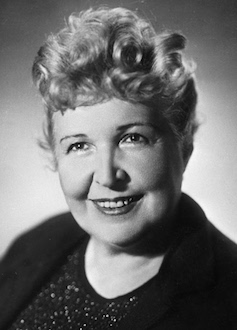
Galina Iosifovna Serebryakova was a Polish-Russian writer and Gulag survivor.
















